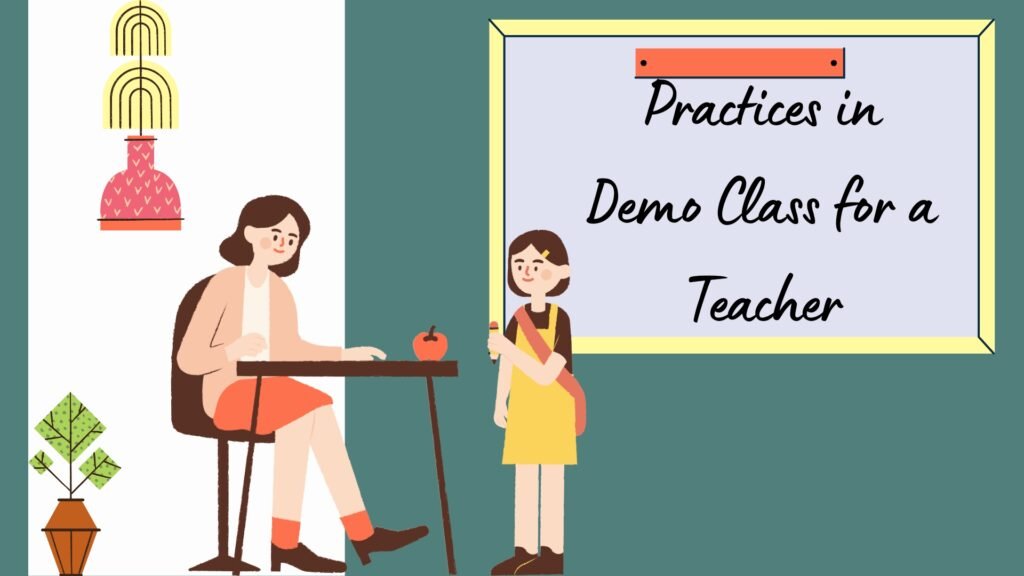A demo class is a great chance for teachers to show their teaching skills and connect with students. To make sure the demonstration goes well, several best practices can be followed. Here are ten important practices that can improve the effectiveness of a demo class.
1. Know Your Audience
Understanding the audience is very important. Teachers should collect information about the students’ age, background, and learning levels. This knowledge helps in adjusting the lesson to meet their needs. For example, younger students might enjoy interactive activities, while older students may like discussions or problem-solving tasks. By matching the lesson with students’ interests, engagement can be greatly improved.
2. Prepare Thoroughly
Preparation is essential for a successful demo class. Teachers should create a clear lesson plan that lists objectives, key concepts, and activities. Practicing the lesson several times helps improve delivery and timing. When teachers are well-prepared, they feel more confident. This confidence allows them to focus on interacting with students instead of worrying about the content. Overall, good preparation makes a big difference in how the class goes.

3. Create an Engaging Introduction
The introduction sets the tone for the lesson. To grab students’ attention, teachers should use an engaging hook. This could be an interesting fact, a question, or a short story related to the topic. For example, starting a science lesson with a surprising statistic about climate change can spark curiosity and get students thinking critically right from the beginning. By using a strong introduction, teachers can make students eager to learn more.
In addition, To get more updates read “Demo Class Guide From Start to End“.
4. Use Interactive Teaching Methods
Using interactive teaching methods is very important for keeping students engaged. Instead of just giving lectures, teachers can mix different teaching strategies, such as group discussions, hands-on activities, or multimedia presentations. This way of teaching creates a lively learning environment where students feel valued and excited to participate. By making lessons more interactive, teachers can encourage students to be more involved in their learning.
5. Provide Clear Explanations
Clear explanations are very important during a demo class. Teachers should explain concepts simply and straightforwardly, avoiding complicated words unless they have been explained before. When introducing new ideas, it is essential to explain why they matter to the lesson. This practice helps students understand better and allows them to connect new information with what they already know. By being clear, teachers can make learning easier for everyone.
6. Encourage Questions
Creating a friendly atmosphere where students feel comfortable asking questions improves their learning experience. Teachers should encourage questions during the lesson instead of waiting until the end. This practice allows for immediate clarification of concepts and helps students understand better. By inviting questions throughout the class, teachers can support students in their learning and make them feel more involved. Overall, an open environment leads to a more effective learning experience for everyone.
7. Implement Effective Classroom Management
Classroom management is very important for keeping a good learning environment during a demo class. Teachers should set clear rules and expectations right from the start. For example, reminding students to raise their hands before speaking helps create an organized classroom. Also, being ready to handle disruptions calmly makes sure that learning can continue without interruptions. By managing the classroom well, teachers can help students focus and learn better.
8. Use Visual Aids and Props
Visual aids can greatly improve understanding and memory during a demo class. Teachers should use helpful images, charts, or props that relate to the lesson. For example, using flashcards or diagrams can make complex ideas clearer and engage visual learners more effectively. By including these tools, teachers can make lessons more interesting and easier for students to grasp. Overall, visual aids play an important role in enhancing learning.
9. Assess Understanding Throughout
It is important for teachers to check how well students understand the lesson as it goes on. This can be done through informal assessments, like quick quizzes or asking open-ended questions to see how much students grasp. If it becomes clear that students are having trouble with a concept, teachers should be ready to change their teaching methods to help them. By being flexible and responsive, teachers can support student learning more effectively.
10. Conclude with Reflection
At the end of the demo class, taking time to reflect is helpful for both teachers and students. Summarizing the main points of the lesson reinforces learning. It also encourages students to share their thoughts on what they learned. Questions like “What did you find most interesting today?” invite feedback and give teachers insight into how engaged students were. By reflecting at the end, both teachers and students can get more out of the lesson. It’s a great way to wrap up the class and identify key takeaways.
Moreover, Read this blog also “The Ultimate Demo Class Checklist for Teachers” on our website.
Conclusion
In conclusion, running an effective demo class needs careful planning and the use of several best practices. By understanding your audience, preparing well, starting with engaging introductions, using interactive methods, giving clear explanations, encouraging questions, managing the classroom effectively, using visual aids, checking for understanding during the lesson, and reflecting at the end, teachers can create valuable learning experiences. These steps help make lessons more enjoyable and effective for students. Overall, following these practices can lead to a successful demo class.
As you think about these practices while getting ready for your next demo class at The Business Cluster, remember that each chance is a step for growth—for you as a teacher and for your students as learners. Embrace these moments to inspire curiosity and make learning fun! If you want to improve your teaching skills with new tools and resources at The Business Cluster, take a look at what we offer today!